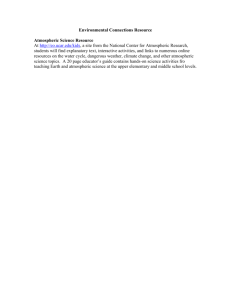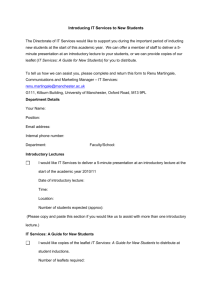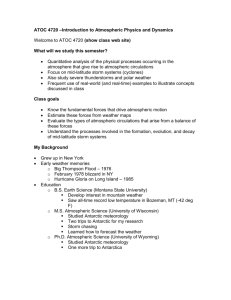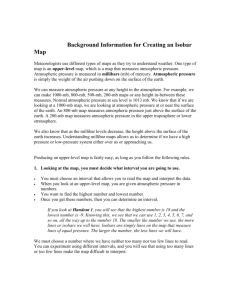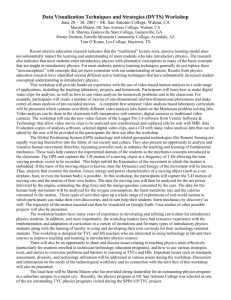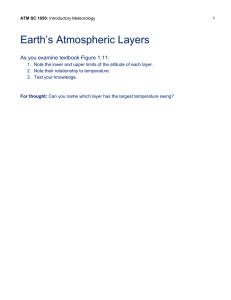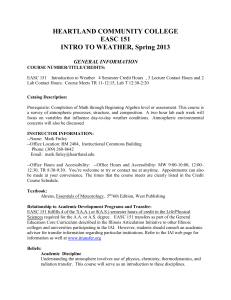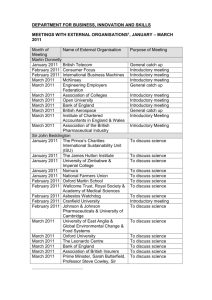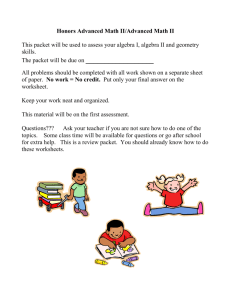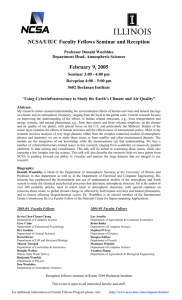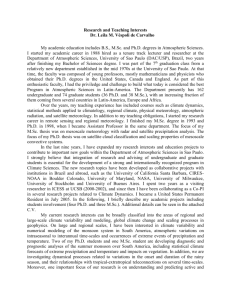Word Document - Earth & Planetary Sciences
advertisement
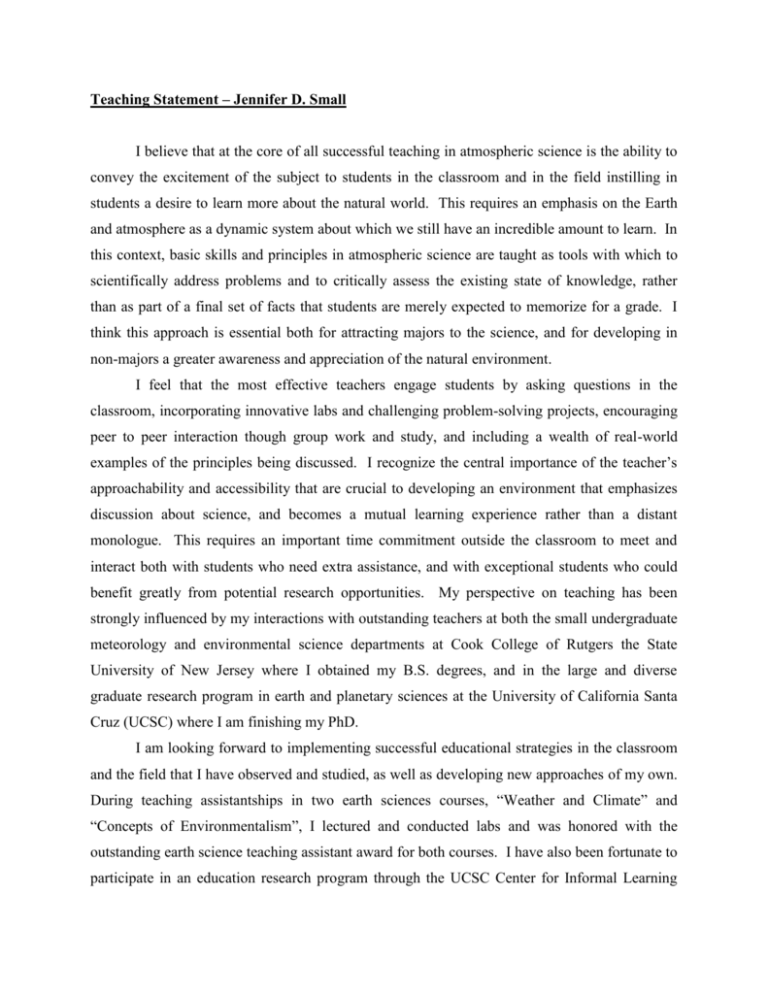
Teaching Statement – Jennifer D. Small I believe that at the core of all successful teaching in atmospheric science is the ability to convey the excitement of the subject to students in the classroom and in the field instilling in students a desire to learn more about the natural world. This requires an emphasis on the Earth and atmosphere as a dynamic system about which we still have an incredible amount to learn. In this context, basic skills and principles in atmospheric science are taught as tools with which to scientifically address problems and to critically assess the existing state of knowledge, rather than as part of a final set of facts that students are merely expected to memorize for a grade. I think this approach is essential both for attracting majors to the science, and for developing in non-majors a greater awareness and appreciation of the natural environment. I feel that the most effective teachers engage students by asking questions in the classroom, incorporating innovative labs and challenging problem-solving projects, encouraging peer to peer interaction though group work and study, and including a wealth of real-world examples of the principles being discussed. I recognize the central importance of the teacher’s approachability and accessibility that are crucial to developing an environment that emphasizes discussion about science, and becomes a mutual learning experience rather than a distant monologue. This requires an important time commitment outside the classroom to meet and interact both with students who need extra assistance, and with exceptional students who could benefit greatly from potential research opportunities. My perspective on teaching has been strongly influenced by my interactions with outstanding teachers at both the small undergraduate meteorology and environmental science departments at Cook College of Rutgers the State University of New Jersey where I obtained my B.S. degrees, and in the large and diverse graduate research program in earth and planetary sciences at the University of California Santa Cruz (UCSC) where I am finishing my PhD. I am looking forward to implementing successful educational strategies in the classroom and the field that I have observed and studied, as well as developing new approaches of my own. During teaching assistantships in two earth sciences courses, “Weather and Climate” and “Concepts of Environmentalism”, I lectured and conducted labs and was honored with the outstanding earth science teaching assistant award for both courses. I have also been fortunate to participate in an education research program through the UCSC Center for Informal Learning and Schools (CILS) as a Graduate Science Fellow. Through this program I have studied educational theory related to science education and education at the university level, as well as conducted my own science/education research project. I feel that this experience has provided me with exceptional tools and resources for teaching and developing science courses in a variety of situations including large lectures for non-majors, small upper-level major classes, and labs or field courses. For my final CILS education research project I am probing the benefits of combining science learning with writing through the analysis of student work in a writing course I designed and taught based on scientific content and questions. As a result of my experience as a teacher, student, and researcher, I feel qualified to teach courses that range from introductory to advanced targeted at students from undergraduate through graduate levels. These classes include introductory meteorology and climatology, introductory cloud physics, introductory atmospheric thermodynamics, introductory environmental science, advanced cloud physics, meteorological instrumentation, and global climate change. Through participation in outreach activities I have had the opportunity to act as a role model to young women and young women in minority groups. I have participated in the annual Expanding Your Horizons conference held at UCSC for four years and the Sally Ride Science Festivals for two years and have developed and presented a variety of hands on workshops. These experiences have taught me how to interact with and inspire young women to enjoy and pursue careers in science. I feel that such programs and other community outreach projects I have participated in are extremely influential in attracting students, especially young women, to atmospheric science, as similar programs during my secondary school and undergraduate years had an important impact on my decision to become an atmospheric scientist. In summary, I am looking forward to the challenges of teaching and advising students. Based on my recent experiences with undergraduates in the classroom and education outreach activities, I feel that I can have a significant impact on increasing numbers of young women who are considering careers in atmospheric science, but still have relatively few female mentors and role models. In the past, I have benefited tremendously from dedicated teachers who have nurtured my interest in science. In the future, I intend to apply what I have learned and effectively use classes, field trips, and research to develop in students and appreciation for science and the atmosphere in which we live.
